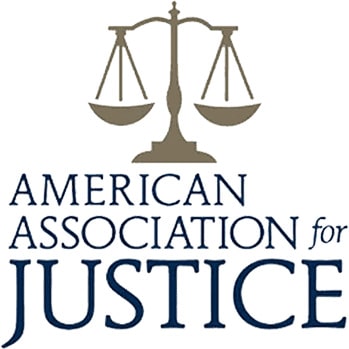Going to court as a rape victim can be daunting. This guide will help you know what to expect in court as a rape victim. We will cover your rights, how to prepare, what happens during the trial, and possible outcomes.
Key Takeaways
- Rape victims have fundamental rights in the legal process, including the right to participation, privacy, and to be informed about their case.
- Preparing for court involves gathering evidence and understanding the roles of courtroom officials, which can help reduce anxiety about the trial.
- Post-trial, victims may experience mixed emotions; self-care, support resources, and potential compensation can play vital roles in their recovery.
Understanding Your Rights as a Rape Victim
 As a rape victim, you have fundamental rights that protect you throughout the criminal justice process. These rights ensure that you are treated with dignity, compassion, and respect, regardless of the legal complexities surrounding your case.
As a rape victim, you have fundamental rights that protect you throughout the criminal justice process. These rights ensure that you are treated with dignity, compassion, and respect, regardless of the legal complexities surrounding your case.
You are entitled to protection, privacy, and participation in the legal process. You have the right to feel safe and secure, and to be involved in the proceedings that affect you as a person. Knowing that you have absolutely nothing to fear knowing that you have a voice and can actively participate can be empowering.
You are also entitled to receive information about your case and the broader justice system. This includes regular updates from the police and the prosecution service, so you’re never left in the dark about the progress of your case. Staying informed can alleviate some of the anxiety associated with legal proceedings.
Another critical aspect of your rights is the limitation placed on the defense to ask about your sexual history during the trial.
This ensures that the focus remains on the crime committed against you rather than on irrelevant details. Additionally, you have the right to be heard and supported throughout the trial. Understanding these rights can help you feel more prepared and less vulnerable as you navigate the legal system.
Preparing for Court
Preparing for court can feel like an insurmountable task, but breaking it down into manageable steps can make the process more approachable. If you decide to report the assault, the first step is to undergo an examination by a qualified forensic examiner. This can be a crucial part of gathering evidence that will support your case.
Gathering enough evidence is vital in building a strong case. This might include text messages, photographs, or any other relevant documentation. It’s also important to gather evidence about courtroom procedures and the roles of various court officials. Understanding who does what can help demystify the process and reduce anxiety.
Before your court date, visiting the courtroom to get a sense of the layout and logistics can be immensely helpful. Knowing where you will sit, where the judge and jury will be, and how the proceedings will unfold can provide a sense of control. Additionally, being aware of security procedures and the exact location and time of your trial will make the day less stressful.
Finally, ensure you have a clear understanding of your treatment options and the legal process. Legal professionals will provide detailed explanations to help you feel more prepared and supported. By taking these steps, you’ll be better equipped to face the challenges of the courtroom.
What Happens During the Trial
Entering the courtroom for the trial can be one of the most daunting experiences. During the trial, you will be required to testify, which involves answering a lawyer’s questions under oath in front of the judge and jury. This is a critical part of the prosecution’s case, and your testimony can significantly impact the trial’s outcome.
It’s important to communicate any additional information to the prosecutor that may help the court. This ensures that all relevant facts are presented and can strengthen your case. After all witnesses have been questioned, both the defense and prosecution lawyers will make their closing speeches before the judge instructs the jury.
Witnesses, including yourself, are required to attend court and answer questions under oath. The sequence of events during the trial is structured to ensure a fair process. After the closing speeches, the jury deliberates on reaching a verdict. If the jury cannot get a unanimous decision, it may result in a hung jury, which could lead to a mistrial and possibly a retrial depending on various factors.
Throughout this process, your identity must not be disclosed in media reports or on social media. This is a protective measure to ensure your privacy and safety. Understanding these aspects of the trial can help you feel more at ease as you navigate this challenging experience.
Testifying in Court
Testifying in court can be an emotionally charged and nerve-racking experience. Many victims feel anxious about facing the courtroom and recounting traumatic events. It’s normal to feel overwhelmed, but knowing what to expect can help alleviate some of these fears.
The cross-examination process is often the most intimidating part of testifying. The defense lawyer will ask you questions to challenge your testimony, but the defendants themselves will not question you directly. Understanding this dynamic can help you prepare mentally for the types of questions that may be asked.
Familiarizing yourself with the roles of everyone in the courtroom can also provide a sense of comfort. Knowing who the judge, jury, and lawyers are, and what their roles entail, can demystify the process and make it less intimidating. Additionally, discussing any concerns about testifying with legal professionals can provide reassurance and practical advice.
The emotional toll of testifying is significant, but remember that your voice is powerful. Sharing your story is a crucial part of the pursuit of justice, and there are support systems in place to help you through this challenging moment.
Special Measures for Vulnerable Witnesses
Special measures are available to make testifying less distressing for vulnerable witnesses. These measures can include giving evidence via video link or from behind a screen, which allows you to avoid directly facing the defendant.
Requesting these special measures can make the courtroom experience more bearable. It’s important to communicate any concerns you have with your legal team so they can arrange for these accommodations. These measures aim to provide a safer and more comfortable environment for you to share your testimony.
Contact us today for your free & confidential case review. Our team will help you get the compensation that you deserve.
Possible Outcomes of the Trial
The trial can end in several possible outcomes, each with its own implications. If the jury cannot agree on a verdict, this is known as a hung jury, which may lead the judge to call for further deliberations or declare a mistrial. A mistrial means the case might be retried, as the defendant has not been convicted or acquitted.
A guilty verdict indicates that the jury has found the defendant guilty beyond a reasonable doubt, leading to sentencing. This is a significant step towards justice, but it can also bring up a mix of emotions for the victim.
Conversely, a not guilty verdict means that the prosecution did not prove the case against the defendant to the jury’s satisfaction. This can be a difficult outcome to process, but it does not mean that you were not believed. It’s a reflection of the jury’s decision based on the evidence presented.
Understanding these potential outcomes helps prepare you for any scenario, providing a sense of closure regardless of the verdict. The emotional impact of the trial’s conclusion can be profound, and it’s important to seek support to navigate these feelings.
Sentencing
If the defendant is found guilty, the judge will decide the length and conditions of the sentence based on various factors, including the severity of the crime and statutory guidelines. This decision can take place immediately after the trial or at a later date.
Victims are not required to attend the sentencing hearing, but they can choose to provide a victim personal statement to express the impact of the crime. This statement can influence the judge’s decision on the sentence.
If the defendant pleads guilty, the judge has the option to sentence them right away. Alternatively, the judge may choose to postpone the hearing to a future date. Understanding the sentencing process can help you feel more informed and prepared for this stage of the criminal justice process.
The sentencing phase is another step towards justice, reflecting the severity of the crime and its impact on your life. Knowing what to expect can help you manage your emotions and expectations during this time.
Appeals Process
The appeals process allows for the review of a trial’s outcome if there is a legal basis, such as new evidence or claims of an unfair trial. It’s important to note that if the defendant is found not guilty, no appeal can be made.
The Attorney General’s Office plays a crucial role in reviewing sentences when an appeal is filed. Factors such as public interest and the likelihood of a conviction influence the decision for a second trial after a hung jury.
Understanding this process can provide clarity and help manage expectations if an appeal is pursued.
After the Trial
 The conclusion of the trial can be a significant turning point, but it often brings a new set of challenges. Many rape victims experience a range of intense emotions, such as anger and a lingering sense of injustice, even years after the incident. These feelings are valid and part of the healing process.
The conclusion of the trial can be a significant turning point, but it often brings a new set of challenges. Many rape victims experience a range of intense emotions, such as anger and a lingering sense of injustice, even years after the incident. These feelings are valid and part of the healing process.
Survivors might also face emotional hurdles, including triggers from media coverage and anxiety when discussing their trauma with others. It’s not uncommon for symptoms of post-traumatic stress disorder (PTSD) to appear long after the assault, manifesting as chronic hypervigilance, sleep disturbances, and ongoing fears for personal and family safety.
Receiving updates on the progress of any appeals and explanations regarding the court’s judgment can help provide closure and a sense of finality. It’s essential to stay informed about these developments to understand the full scope of the judicial process.
Transitioning to life after the trial involves seeking support and practicing self-care to navigate the emotional aftermath.
Understanding what resources are available can make a significant difference in your healing journey.
Self-Care and Support Resources
Self-care and support are crucial components of recovery after experiencing sexual violence. Connecting with victim advocates can provide emotional support and guidance throughout the legal process. Advocates can offer a listening ear, practical advice, and a compassionate presence.
Counseling and support groups are invaluable resources. Emotional readiness is vital, and engaging in therapy or joining support groups can help you process your trauma. Cognitive behavioral therapy (CBT) is particularly effective in helping victims manage and overcome the psychological impacts of sexual assault.
Career counseling and mental health services can also provide additional support, helping you rebuild your life and career after the trauma. These services can assist in navigating the complexities of returning to work or pursuing new opportunities.
Remember, self-care is not a luxury but a necessity. Taking time to care for your physical and mental health is essential in coping with the effects of your experiences. Engage in activities that bring you peace and joy, and don’t hesitate to seek professional help when needed.
Crime Victim Compensation
Financial compensation is available for rape victims who report the crime and cooperate with law enforcement. This compensation can cover medical expenses, therapy costs, and other expenses related to the traumatic experience.
The process of obtaining crime victim compensation involves several steps, including filing a claim and providing necessary documentation. It’s important to work closely with law enforcement and victim support services to ensure you receive the assistance you are entitled to. This financial support can alleviate some of the burdens and help you focus on your recovery.
Frequently Asked Questions
What should I do if I feel too anxious to testify?
What if the jury can’t decide on a verdict?
Can I receive financial compensation as a rape victim?
Will my privacy be protected during the trial?
What happens if the defendant is found not guilty?
Last updated Wednesday, September 18th, 2024











